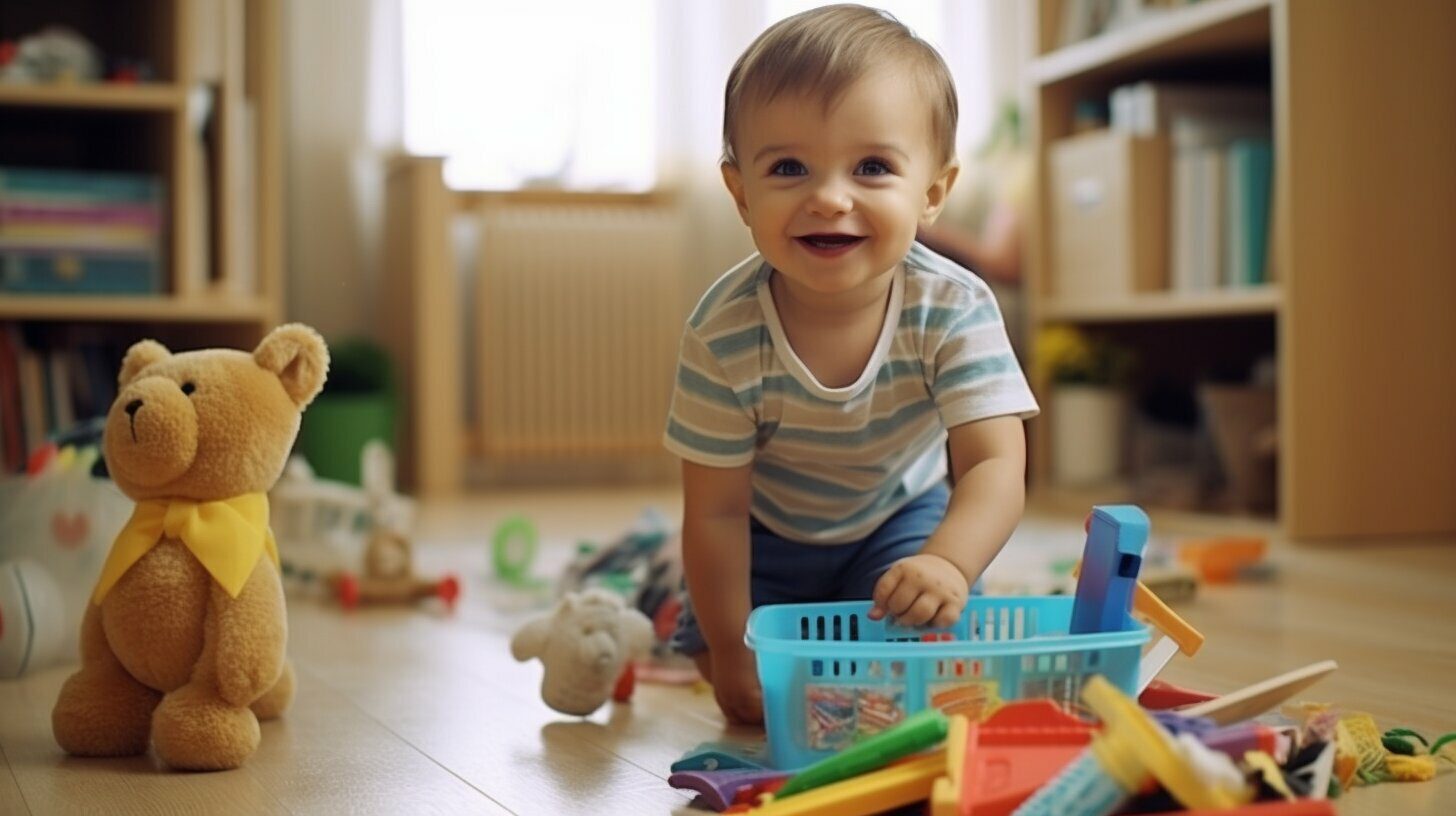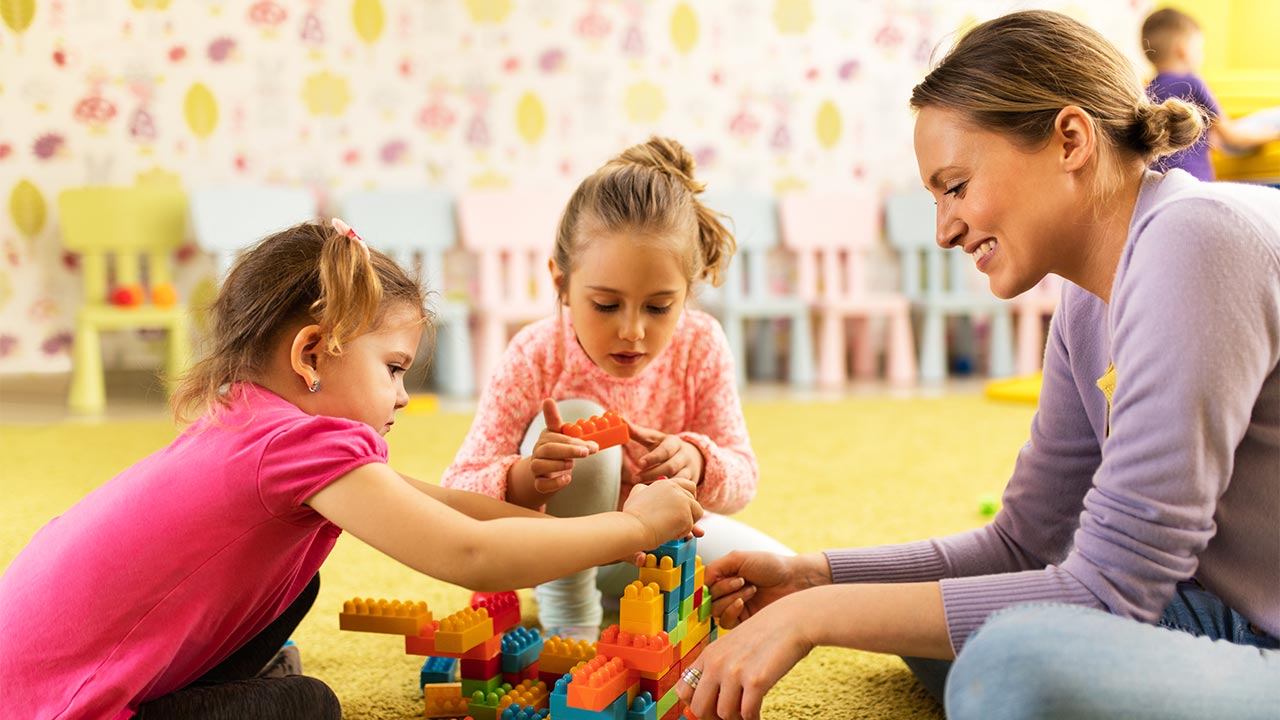Toddlers, in their boundless curiosity and rapid development phase, often exhibit an unexplainable fascination with pretend cleaning. This seemingly mundane and adult-oriented activity captures their attention, leading many parents and caregivers to ponder its underlying reasons. Exploring this intriguing phenomenon provides valuable insights into child development, psychology, and the subtle ways in which children engage with their environment.
Understanding Pretend Play in Toddlers
Understanding Pretend Play in Toddlers involves delving into the intricate world of a child’s imagination and developmental milestones. This type of play is a pivotal aspect of early childhood development, characterized by children engaging in imaginative scenarios, often imitating real-life situations.
Toddlers typically engage in pretend play between the ages of 18 months and 3 years, a phase where their cognitive, social, and emotional skills undergo rapid growth. During this stage, they start imitating actions and behaviors observed in their surroundings, which includes mimicking everyday activities like cooking, cleaning, or caring for dolls or stuffed animals.
In the context of pretend cleaning, toddlers imitate actions associated with tidying up or maintaining cleanliness. This could involve using toy brooms, mops, or pretending to wipe surfaces. The allure of this activity for toddlers lies in their fascination with imitating the roles and responsibilities they witness adults performing in their daily lives.
This form of play isn’t just entertainment for toddlers; it’s a critical component of their development. It aids in cognitive advancement by stimulating creativity, problem-solving, and language skills. Moreover, it serves as a platform for social interaction as children engage in collaborative play scenarios, negotiating roles and sharing ideas.
Encouraging pretend play, especially activities like pretend cleaning, can be beneficial for a child’s growth. Providing safe and age-appropriate props, offering positive reinforcement, and engaging in these activities alongside toddlers not only fosters their imagination but also strengthens the bond between caregivers and children.
Ultimately, understanding and nurturing a toddler’s engagement in pretend cleaning and other forms of imaginative play contribute significantly to their overall development, laying the groundwork for various skills and abilities that will serve them in their future endeavors.

The Psychology Behind Pretend Cleaning
Understanding the intricacies of The Psychology Behind Pretend Cleaning in toddlers unveils a multifaceted exploration into their cognitive, emotional, and social development.
Imitation and Learning
Toddlers, in their early years, are avid imitators. They keenly observe and mimic the behaviors and actions of adults in their environment. Pretend cleaning becomes a way for them to imitate the routines and responsibilities they witness, instilling in them a foundational understanding of cleanliness and organization.
Cognitive Development
Engaging in pretend cleaning fosters cognitive growth in toddlers. It sparks imaginative thinking, problem-solving, and language development as they construct scenarios and narratives surrounding cleaning activities. This imaginative play nurtures creativity and critical thinking skills crucial for their overall cognitive development.
Emotional Expression
Pretend cleaning serves as a canvas for emotional expression. Toddlers might mirror emotions associated with cleaning, such as a sense of accomplishment or care, allowing them to express and explore these feelings in a safe and controlled setting. This imitation of emotions aids in their emotional understanding and regulation.
Sense of Control and Autonomy
Participating in activities like pretend cleaning empowers toddlers by offering a sense of control. Through mimicry of adult actions, they navigate and comprehend their surroundings, fostering a sense of independence and autonomy. This sense of control contributes to their confidence and self-assurance.
Social Development
Pretend cleaning also plays a role in social development. It encourages cooperative play as children engage in role-playing scenarios, negotiating roles, sharing responsibilities, and interacting with peers. This collaborative play nurtures their social skills, teaching them the nuances of communication and cooperation.
Comprehending the psychological underpinnings behind a toddler’s fascination with pretend cleaning unveils its profound impact on their holistic development. It transcends mere imitation of chores; it’s a pivotal aspect of their cognitive, emotional, and social growth.
Encouraging and nurturing this interest in pretend cleaning not only fosters their imagination but also serves as a catalyst for comprehensive development across various domains.
Impact on Child Development
The Impact on Child Development stemming from a fascination with pretend cleaning in toddlers is profound and far-reaching, influencing various facets of their growth.
Cognitive Development
Engaging in pretend cleaning fosters cognitive advancement in toddlers. This imaginative play stimulates problem-solving skills, creativity, and language development. As they mimic cleaning actions, they construct scenarios, enhancing their critical thinking abilities crucial for cognitive growth.
Social Skills
Participating in pretend cleaning encourages social interaction and cooperative play. Toddlers engage in role-playing scenarios, sharing roles, and negotiating responsibilities. This collaborative play fosters essential social skills like communication, cooperation, and empathy, laying the foundation for healthy interpersonal relationships.
Emotional Regulation
Pretend cleaning provides a platform for emotional expression and regulation. Toddlers emulate feelings associated with cleaning, such as accomplishment or nurturing, allowing them to explore and understand emotions in a controlled environment. This helps in developing emotional intelligence and self-regulation skills.
Problem-Solving and Imagination
Through pretend cleaning, toddlers engage in imaginative scenarios and problem-solving tasks. They create narratives, invent situations, and find solutions, fostering creativity and imaginative thinking. This form of play nurtures their ability to think outside the box and approach challenges innovatively.
Responsibility and Independence
Engaging in activities like pretend cleaning instills a sense of responsibility in toddlers. It empowers them by allowing them to mimic adult behaviors, fostering a sense of independence and self-reliance. This early exposure to responsibilities contributes to their growing sense of autonomy.
Encouraging and Facilitating Pretend Cleaning
Encouraging and facilitating pretend cleaning in toddlers involves nurturing their interest in this imaginative play while providing the necessary support and tools for their engagement.
Providing Safe Tools
Offer child-friendly cleaning tools like toy brooms, mops, dustpans, and pretend cleaning supplies. These safe and age-appropriate props encourage toddlers to participate in pretend cleaning activities without compromising their safety.
Positive Reinforcement
Offer praise and positive feedback when toddlers engage in pretend cleaning. Acknowledge their efforts and enthusiasm, boosting their confidence and reinforcing their interest in these activities. Simple words of encouragement can go a long way in motivating them.
Modeling Behavior
Lead by example and engage in pretend cleaning alongside toddlers. Demonstrate how to playfully engage in cleaning activities, fostering bonding moments and encouraging them to participate in these role-playing scenarios.
Creating Playful Scenarios
Encourage imaginative play by creating scenarios where pretend cleaning becomes a fun and enjoyable activity. Use storytelling or role-playing to make cleaning activities more engaging, stimulating their creativity and involvement.
Incorporating Play in Routine
Integrate pretend cleaning into daily routines or playtime schedules. Making it a regular part of their play sessions reinforces their interest and allows them to explore this activity consistently.
Allowing Freedom and Creativity
Provide space for toddlers to explore and create their own cleaning scenarios. Allow them the freedom to express their imagination during pretend cleaning, fostering their creativity and problem-solving skills.
Conclusion: The Profound Impact of Pretend Cleaning on Toddler Development
Understanding a toddler’s fascination with pretend cleaning unravels the intricate web of their developmental milestones. This seemingly mundane activity holds profound significance in shaping a child’s cognitive, social, and emotional growth.
As caregivers, embracing and nurturing this interest not only encourages imaginative play but also lays the groundwork for well-rounded development in toddlers.


